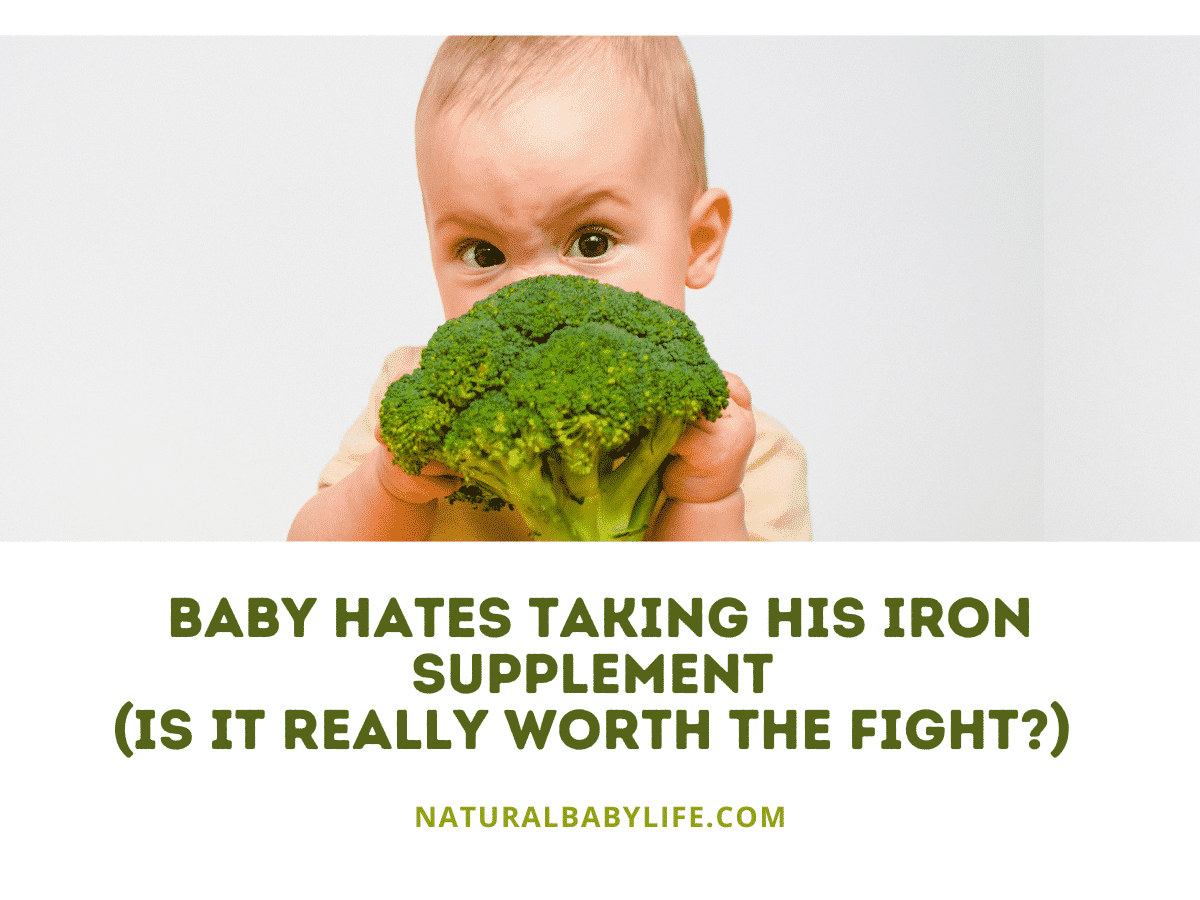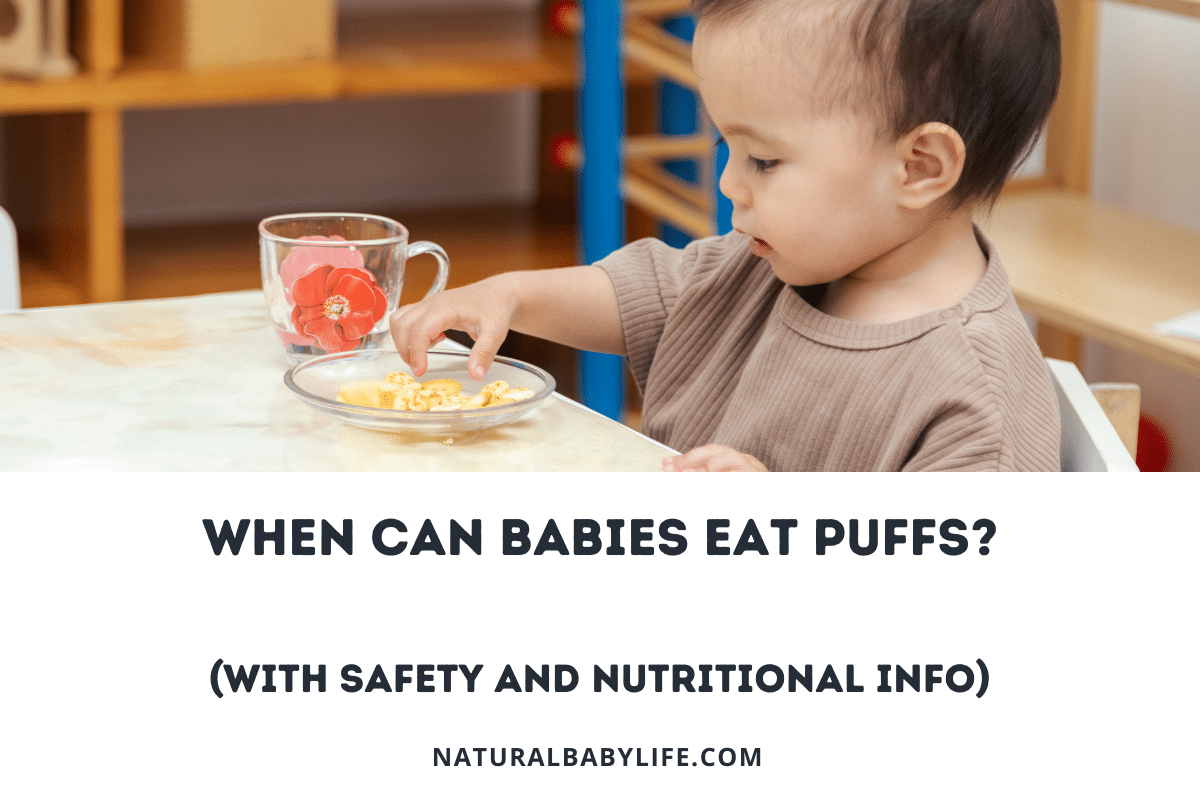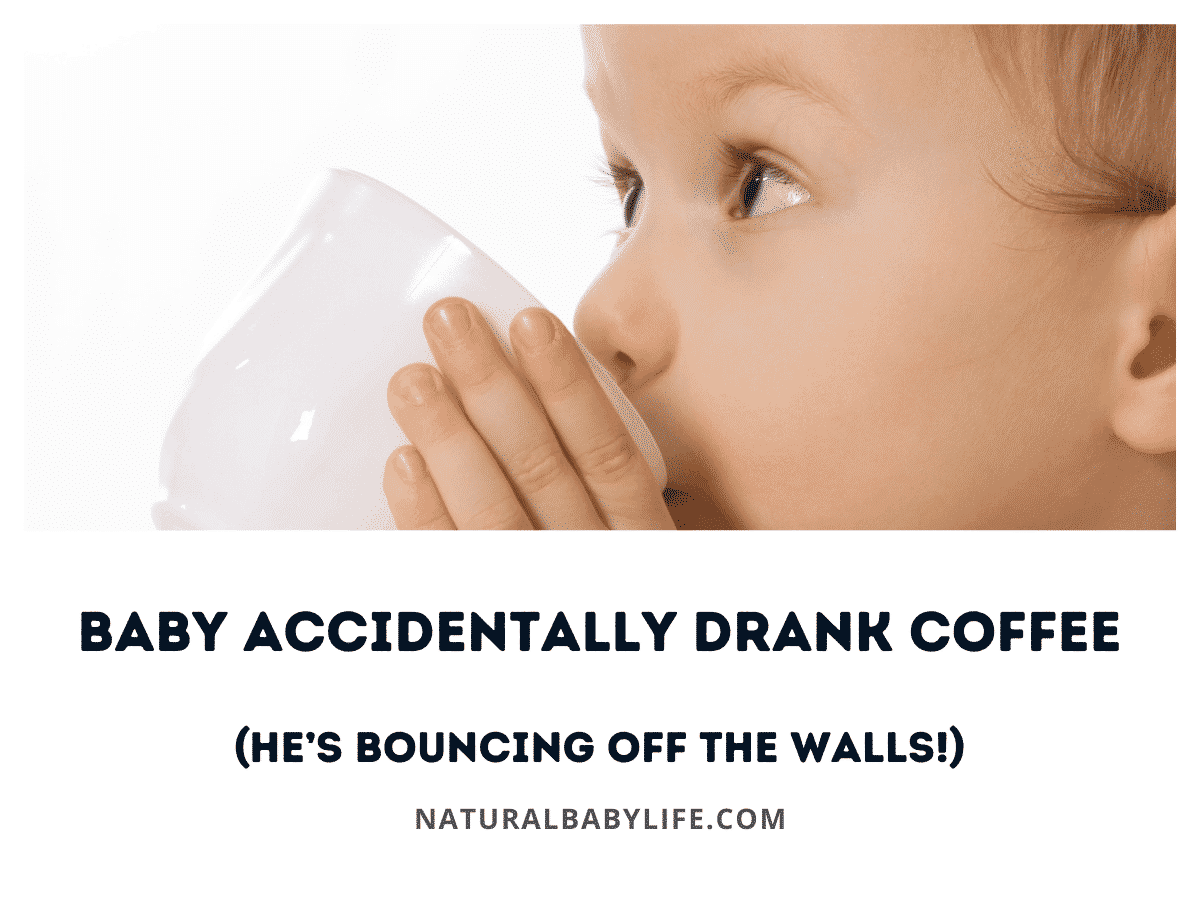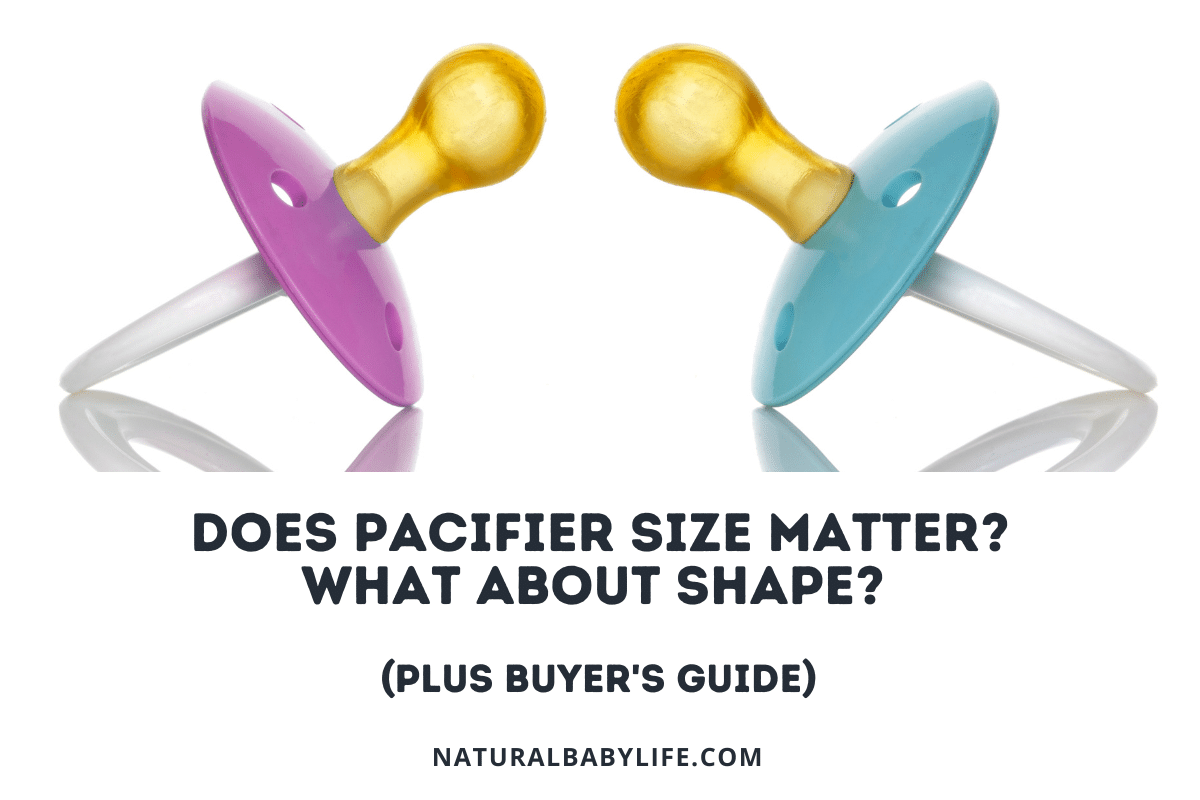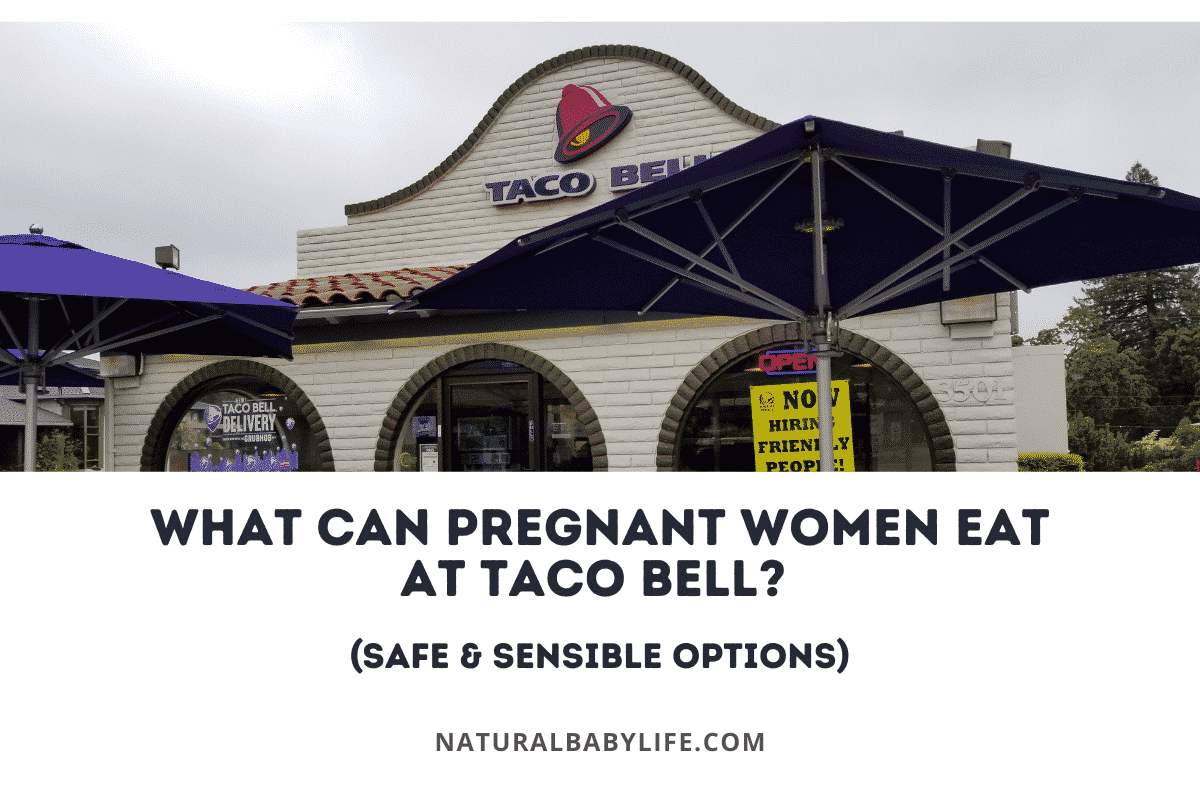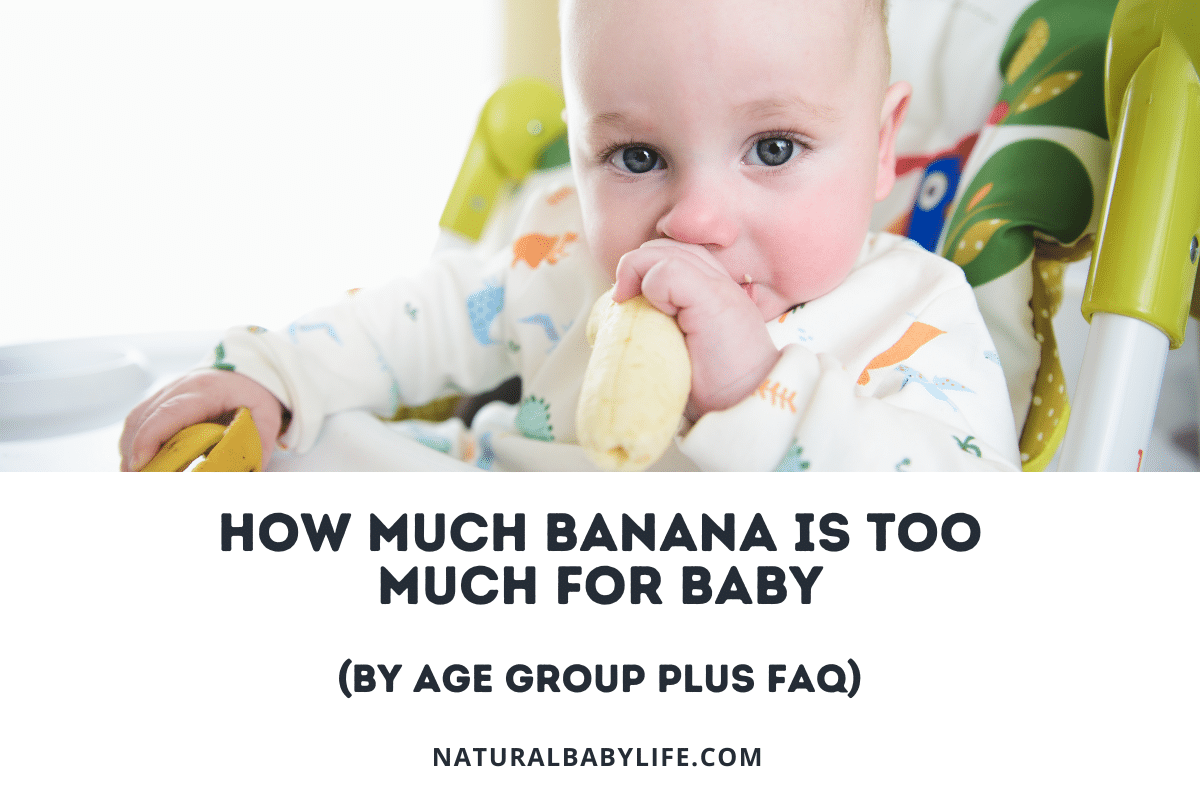Iron deficiency is fairly common in the United States, and the amount of kid’s iron supplements available on the market increases each year. But when your baby or toddler won’t take their iron supplement due to taste, texture or other preferences, you may be wondering if it is even worth the fight.
Help your baby take his iron supplement more easily by trying a different form (such as dissolvable tablets or drops), hiding the taste in food or drinks, or just feeding your baby more iron-rich foods. Since iron deficiency in babies can lead to serious problems it is best to address this issue as quickly as possible.
Read on to learn some of these solutions, why having sufficient iron levels is important, and how to include iron-rich foods in your baby’s diet as well.
Table of Contents
What should I do if baby won’t take his iron supplement
It is important for your baby to take any supplement that has been prescribed to them or has otherwise been found necessary for their proper growth and development. If a child does not take the necessary supplementation to correct a deficiency in their youth, the ramifications of this deficiency could be seen far beyond their developing years and even into adulthood.
Therefore, it is crucial to find ways to get your little one to stomach their supplement, whether by disguising the taste, trying a new brand, or finding an alternative means of supplementation.
Why is iron important for development?
Having adequate levels of iron is important for the proper functioning of every system of the body. Iron helps the body to make hemoglobin, which is a component of red blood cells.
Hemoglobin helps oxygenate the body and without it, muscles and organs cannot function properly. In addition, maintaining healthy levels of iron in the body helps support proper immune system function and prevent common childhood illnesses like colds and ear infections.
Do babies really need iron supplements?
You should always discuss any vitamin supplementation with your child’s pediatrician or family doctor. A quick blood test can even be done to examine your child’s iron levels and see if any supplementation is necessary.
If your baby has been tested and found to be iron-deficient then iron supplements could be a necessity. However, most babies under the age of 1 should be getting enough iron from their breastmilk or formula, with a few exceptions we will detail below.
But if your baby is beginning to wean off their formula or breastmilk and transition to solid foods, this would be a great time to start to consider iron supplementation. Toddlers who are just beginning to experiment with eating solid foods may not be getting enough iron, especially if they are picky eaters or have other dietary restrictions like allergies.
Should breastfed babies take iron supplements?
Most breastfed babies probably get enough iron from their milk, unless there are dietary reasons that the nursing mother must avoid iron-rich foods, or the mother is otherwise iron-deficient. In addition, all babies are born with a reserve of iron that lasts them until around 4-6 months of age. Thus, the chances of a full-term and healthy breastfed baby becoming iron-deficient are slim.
However, most doctors recommend that breastfed babies receive additional iron (either through diet or through supplementation) after the age of 6 months due to the reduction of the iron stores that were present at birth. However, you should never give your baby iron supplements unless instructed by your doctor.
Likewise, the CDC recommends that babies who were born prematurely or with a low birth weight also receive iron supplementation. Premature babies should normally receive an iron supplement until at least their 1st birthday when directed by your doctor.
Should formula-fed babies take iron supplements?
According to the CDC, if your baby is regularly consuming a formula that is already fortified with iron, you likely don’t need to worry about providing them with even more iron in their diet via a supplement form.
However, if your preferred formula does not have any iron fortification in it, a supplement could be a good idea. And just as with breastfed babies, a supplement can also be beneficial to children who had a low birth weight or who were born many weeks before their due date.
How much iron should my baby get a day
It is important to give your child a proper dosage of iron supplementation for their age and weight, and to work in conjunction with your child’s pediatrician to actively monitor their iron levels and watch for any side effects. You don’t want to give your little one either too much or too little of their supplement.
The recommended daily allowance of iron in babies and toddlers is as follows:
- .27mg for ages 0-6 months
- 11mg for ages 7-12 months *
- 7mg for ages 1-3 years
*Note – the recommended amount is higher for babies ages 7-12 months because of their increased growth and limited dietary intake at this age.
Iron deficiency in babies
Iron deficiency can affect your child’s behavior and development and cause issues such as muscle weakness, learning disorders, or delayed motor skills.
Some symptoms of iron deficiency to watch for include:
- Social withdrawal
- Behavioral issues
- Slow weight gain
- Pale skin
- Low or no appetite
- Extreme irritability
If you begin to notice any of these symptoms or otherwise suspect your little one may have iron deficiency, contact your child’s pediatrician and get a ferritin blood test. This simple test can confirm your suspicions or eliminate iron deficiency as a source of your child’s health problems.
If an iron deficiency is not treated, long-term effects can include gastrointestinal issues, chronic fatigue, impaired cognitive function, and learning difficulties.
Can babies get too much iron?
It is possible to overdose on iron and experience adverse side effects to too much iron supplementation. Under no circumstances should children receive more than 40mg of iron per day.
Accidental ingestion of iron has even led to poisoning deaths in young children in the United States and around the world. Parents should watch for signs of iron poisoning such as severe vomiting, diarrhea, pale skin and lethargy.
How can I help my baby get enough iron??
So how can you ensure your baby cooperates with taking a daily supplement such as iron? This may be your first foray into the world of baby vitamins, and you may be wondering how your little one can receive supplementation if they can’t yet swallow pills. Luckily, there are many products on the market specially formulated and designed for babies and toddlers.
Try a different type of supplement
There are several different types of iron supplements for babies and toddlers, so if your little one has rejected one type – you may have luck with another.
The type that your child prefers will vary with age and taste preferences. Some children will need to be fed the vitamin in liquid form by a parent, while others may prefer taking their iron in a gummy form where they can feel that they are in control.
Drops
Iron drops are the best choice for the youngest babies and can easily be mixed with a beverage, or simply dropped directly onto your little one’s tongue. The dropper also makes dosing easy and convenient since you don’t have to pour or measure any of the product yourself. Liquid drops are also easily absorbed into the body. However, some iron drops may temporarily stain your baby’s teeth so be sure to brush after giving them iron in this form.
Top pick: Nature’s Nutra Easy Iron
Flavored liquid
Although some liquid iron supplements come with a dropper, you can also measure the dosage out onto a spoon or mix with food or juice for better results. Flavored liquid is the best choice for picky toddlers if you need to disguise the iron taste with something else.
Top pick: Yummy! Liquid Iron (Raspberry Grape) by NovaFerrum
Chewable gummies
Chewable gummies are one of the best modern inventions for parents trying to get their little ones to take their vitamins! As long as your little one is old enough to chew and swallow properly without choking, iron gummies can be a great choice for older babies and toddlers.
Just be sure you store the bottle out of reach of your toddler, as they may equate the vitamin bottle with candy and want to eat them all the time.
Top pick: Vitamin Friends Vegan Iron Gummies
Dissolvable tablets
Another option that closely resembles candy is dissolvable tablets. Similar to the famous Flintstone tablets, your baby or toddler is sure to love them. Kids can suck on or chew these yummy iron tablets instead of struggling to swallow a liquid option or chew a gummy.
Top pick: Renzo’s Iron Strong Tablets
Hide the taste of iron supplements
Most likely, the reason your little one won’t take their supplements willingly is that they just don’t like the taste. One of the things parents can do to help remedy this issue is to mix your baby’s vitamins with different flavors to help disguise the taste.
Mix with juice
Though you will want to avoid giving iron with milk (which interferes with absorbency), giving iron alongside a juice that is high in vitamin C (like orange juice) can actually aid in proper absorption. Simply pour your child a serving of their favorite juice in their bottle or sippy cup and measure out the proper dosage of their powdered or liquid iron supplement. Make sure they drink all of their juice at once and discard any unused beverage after a couple of hours.
Mix with food
Older babies and toddlers who love to try solid foods would especially enjoy receiving their iron supplementation in this way. Soft foods like pudding, peanut butter, applesauce, or yogurt are a few particularly good options for this trick. As with the juice, simply measure out the proper dose of their liquid or powdered supplement and discard if uneaten within an hour or 2.
Feed him iron-rich foods
If you just can’t get your little one to take their iron supplements, don’t worry! You aren’t out of options. Thankfully, there are a ton of easy ways to get more iron into your baby’s diet with iron-rich foods.
Red meat, eggs, poultry, and fish are the best dietary sources of iron. Iron from animal sources is ideal because it is more easily absorbed by the body than plant-based sources.
However, some great vegetarian sources include fortified cereals and oatmeal, leafy greens like kale or broccoli, prunes, and beans. A few easy and delicious iron-rich meal ideas for your baby or toddler include:
- Chicken with rice and beans
- A green smoothie with spinach and kale
- Salmon with a side of broccoli
- Baby cereal with a cup of prune juice
Note: contrary to popular belief, cow’s milk is not a particularly good source of naturally-occurring iron in the diet. In fact, drinking too much cow’s milk can lead to iron deficiency in your little one.
Babies 12 months or older should drink no more than 750 mL of milk each day.

